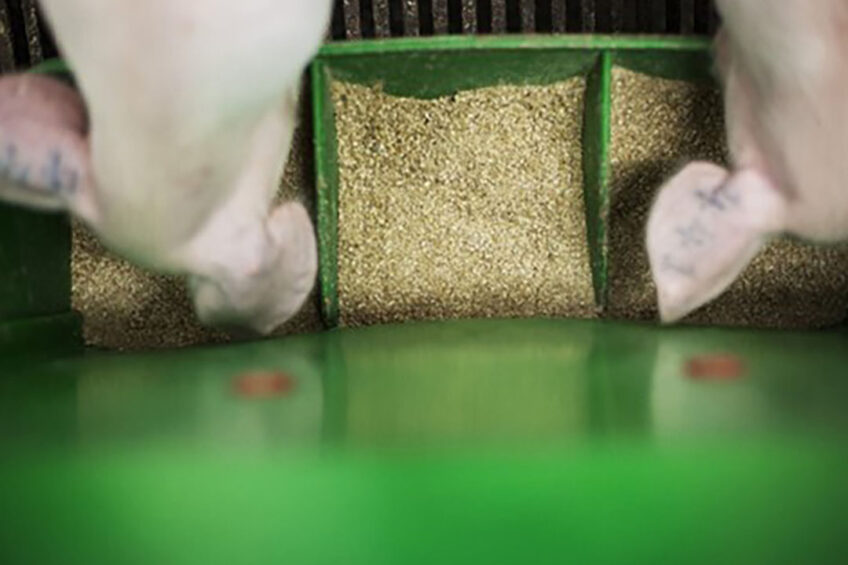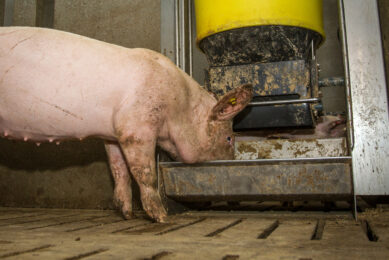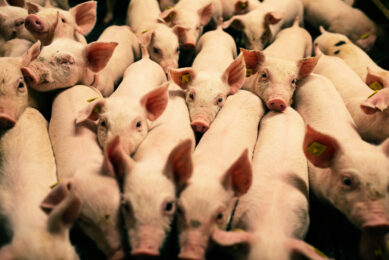Denmark studies enzymes to make pigs healthier

A new Danish research project will develop a feeding concept to improve the pig gut microbiota. The aim is to improve pig health, reduce methane emissions and improve pig growth performance and thus the overall production economy.
Aarhus University will develop the concept, in cooperation with Danisco Animal Nutrition & Health, part of IFF’s Health & Biosciences division. Preliminary results are so promising that Innovation Fund Denmark decided to grant DKK 14 million (€ 1.9 million) to this project.
Supplemented enzyme in the pig feed
In a news release shared by Aarhus University, project manager Charlotte Horsmans Polsen, IFF, explained: “The concept builds on a new approach in which a supplemented enzyme is added to the feed. This enzyme will release so-called prebiotic substrates in the gastro-intestinal tract in pigs.”
The prebiotic substrates will increase the development of a desirable gut microbiota composition with higher numbers of growth-promoting beneficial bacteria and fewer methanogenic archaea, which produce the climate gas methane.She continued to say, “We expect that the new feeding concept will reduce methane emissions from pig production, improve pig growth and performance and increase the general health status in pig herds.”Danisco will be responsible for developing the enzyme concept, and Aarhus University will investigate the impact on pigs’ methane emissions. In addition, the impact of the enzyme on pig growth performance, feed efficiency, gut health, and immune response will be investigated.
Far less methane emission with pigs
Aarhus University’s senior researcher Ole Højberg, attached to the department of Animal Sciences, is also the coordinator of the university’s part of the project. He said: “Compared to cattle, pigs emit far less methane per animal, but due to the considerable pig population size in Denmark, it is important to consider the possibilities of reducing emissions from pigs.”
He further pointed out that one of the major potentials of the new feeding concept is a reduced climate footprint together with an improved pig health as well as a reduced dependence on antibiotics and other antimicrobial substances in production.
Antimicrobial resistance is an increasing problem
A high consumption of antibiotics results in resistance in the micro-organisms at which the antibiotic treatment is targeted. Antimicrobial resistance is an increasing problem and is considered as a major global threat to public health.
Denmark has a huge pig production, and this means that about 75% of the antimicrobials used for livestock in Denmark is applied to pigs.











